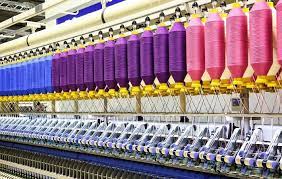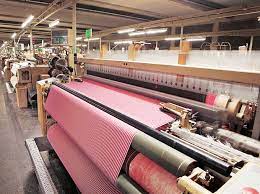
Setting High Standards of Quality Since 1968
Revolutionizing the World of Manufacturing Engineering Components with Unparalleled Excellence & Expertise
Learn MoreTextile Industry
The textile industry is primarily concerned with the design, production and distribution of yarn, cloth, and clothing. The raw material may be natural, or synthetic using products of the chemical industry.
Cotton manufacturing -
Cotton is the world's most important natural fiber. In the year 2007, the global yield was 25 million tons from 35 million hectares cultivated in more than 50 countries.
Synthetic fibers -
Artificial fibers can be made by extruding a polymer, through a spinneret into a medium where it hardens. Wet spinning (rayon) uses a coagulating medium. In dry spinning (acetate and triacetate), the polymer is contained in a solvent that evaporates in the heated exit chamber. In melt spinning (nylons and polyesters) the extruded polymer is cooled in gas or air and then sets. All these fibers will be of great length, often kilometers long.
Natural fibers -
Natural fibers are either from animals (sheep, goats, rabbits, silkworms) minerals (asbestos) or from plants (cotton, flax, sisal). These vegetable fibers can come from the seed (cotton), the stem (known as bast fibers: flax, hemp, jute) or the leaf (sisal). Without exception, many processes are needed before a clean even staple is obtained- each with a specific name. Apart from silk, each of these fibers is short, being only centimeters in length, and each has a rough surface that enables it to bond with similar staples.



CLIENTS

